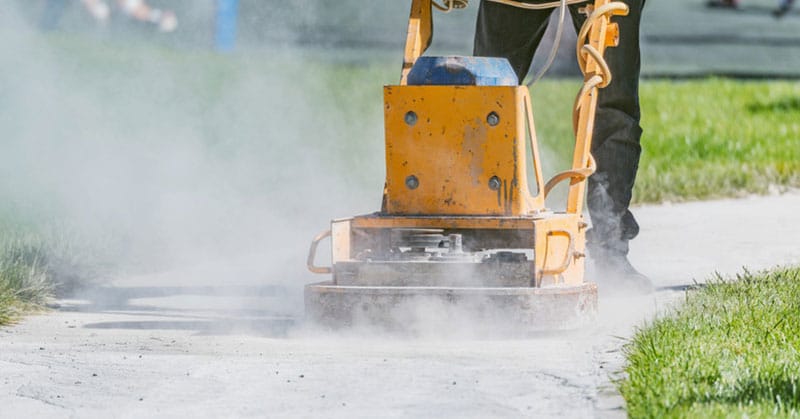Asphalt pavement is a major investment, so it only makes sense to protect that investment and extend its lifespan as much as possible. If you have any type of asphalt pavement on your property – whether it’s simply an asphalt driveway in front of your home or a large parking lot adjacent to your business – one of the best ways to maintain and protect that surface is with a periodic application of sealcoat. A local paving contractor can tell you when your asphalt needs sealcoating, and they’ll make that decision based on a number of factors, including the following:
- The asphalt is damaged — If there are several imperfections that are obvious – such as potholes, cracks, indentations, or fading, for example – then you’ll definitely need sealcoating. But before applying that sealcoat, your contractor will want to repair any damaged areas.
- The age of the asphalt – A brand new surface typically doesn’t need to be sealcoated during the first six months. But as the pavement begins to age, periodic sealcoating will protect the surface and extend the lifespan of the pavement. In most circumstances, paving contractors recommend sealcoating every two to four years, depending on climate and use.
- Climate – As you might guess, freeze-thaw cycles are hard on pavement, causing it expand and contract, which ultimately leads to cracking. But even if you live in a warm climate, the weather has an impact on any asphalt surface. In fact, rain and water from irrigation can be just as damaging to asphalt as a freeze-thaw cycle. Water can seep into even the smallest cracks in a surface, and once that happens the cracks will grow and lead to further damage. Too much sunshine can also damage pavement, causing it to fade, oxidize, and become brittle. If your paved surface is showing signs of weather damage, sealcoating is an excellent way to protect it.
- Traffic – If your paved surface is exposed to a great deal of heavy traffic on a regular basis, which would be the case for parking lots or roadways, for example, it will need to be sealcoated more often. The reason is simple: heavy traffic wears down the surface, so you’re more likely to notice damage occurring faster than you would on pavement that has light use, such as a residential driveway or walking path, for example.
For more information on sealcoating and how to protect your asphalt pavement, contact a reputable local paving contractor.
